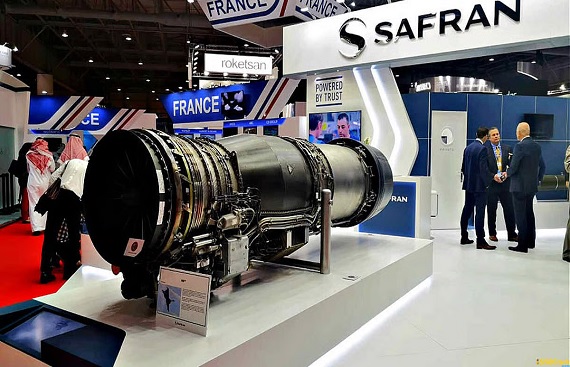PM Modi to Unveil Safran's First India-Based Aircraft Engine MRO Facility

- Safran’s Rs 1,300 crore LEAP-engine MRO center to be inaugurated in Hyderabad
- India’s first global OEM-backed aircraft engine maintenance facility
-
Will service 300 engines a year and employ 1,000 skilled workers by 2035
Prime Minister Narendra Modi will virtually inaugurate Safran Aircraft Engine Services India’s new maintenance, repair and overhaul (MRO) facility in Hyderabad on Wednesday. The center marks a major breakthrough for India’s aviation sector, becoming the country’s first MRO operation set up by a global aircraft engine manufacturer.
The facility is dedicated to servicing Safran’s LEAP engines, which power popular aircraft such as the Airbus A320neo and Boeing 737 MAX. According to officials, this is one of the largest LEAP-engine MRO centers set up globally and a crucial milestone in India’s aviation manufacturing journey.
Spread across 45,000 square meters inside the GMR Aerospace and Industrial Park-SEZ, the advanced facility has been built with an investment of nearly Rs 1,300 crore. Once fully operational by 2035, it will be able to handle up to 300 engines annually and employ over 1,000 highly skilled Indian engineers and technicians.
The center will house modern machinery and specialized processes to deliver world-class engine overhauls and repairs. The government said the project supports India’s push for self-reliance by reducing dependence on overseas MRO services.
Also Read: Kwatra Strengthens India-US Collaboration in Technology, AI and Innovation
Developing strong domestic MRO capabilities will help India bring down foreign exchange outflow, create high-value technical jobs, and strengthen the aviation supply chain. It also positions the country as a competitive global hub for aircraft servicing.
The government has introduced several policy measures such as the GST reforms of 2024, the MRO Guidelines 2021, and the National Civil Aviation Policy 2016 to simplify regulatory processes and reduce operational costs for MRO providers.
